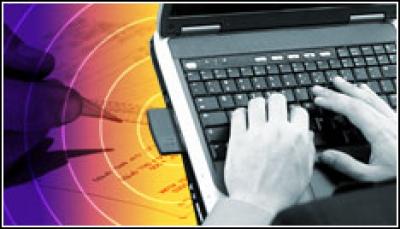Poor Families To Get Government Laptops

The government has announced plans to provide 270,000 low-income families with free laptops and broadband access, as part of its £300 million Home Access scheme
Prime Minister Gordon Brown has announced the next stage of a scheme to provide 270,000 low-income families with free laptops and broadband access. In doing so, the government hopes to enable more families to access the Internet, narrowing the digital divide between rich and poor in the UK.
The £300 million Home Access scheme was first launched in September 2008, with the introduction of two year-long pilot studies in Oldham and Suffolk. The pilots targeted well-off families that did not use technology for learning or who felt it had no educational value. At the time, former schools minister Jim Knight said “Bridging the digital divide is not just about giving parents who cannot afford home IT a financial leg-up – it is about selling the educational benefits of home computer and Internet access far better to those that can afford it.”
However, the Prime Minister indicated in his speech at the international education forum in Westminster today that the next stage would focus on poorer families. “We want every family to become a broadband family, and we want every home linked to a school,” he said. “It will mean all families can come together, learn together and reap rewards together.”
“We realise that for parents to influence and engage in the education of their children they need rich, varied and easily accessible information on the progress, behaviour and attendance of their children,” he added. “So the mother who’s worried about her son struggling with his reading can find out more about how she can help. Or the dad who works long hours and can’t make a parents’ evening can keep in touch with his daughter’s progress, at whatever time of the day or night that he’s free.”
The scheme is to be included in the Children, Schools and Families Bill for 2009/2010, which is yet to be debated in the House of Commons. The government claims that all families with children aged between seven and 14 will be able to apply for a grant to buy a computer and broadband connection, but children in council care and with specific educational needs will be prioritised.
Government research shows that 81 per cent of parents think that having Internet access at home helps increased parental engagement with their children’s education and boosts attainment at school. It also claims that pupils with a computer at home could improve by two grades at GCSE.
“Families who are most in need cannot be left behind in the digital revolution we’re seeing in education,” said the current secretary of state for children, schools and families, Ed Balls. “We’re leading the world with the way we use technology in learning and we’ve shown our commitment to this by making ICT the backbone of every lesson in the new primary curriculum.”
“Being online at home provides educational, economic and social benefits that cannot be ignored. We estimate that around one million children are without the Internet at home, and it’s clear they are at a disadvantage to their peers. Computers are no longer a luxury for the few, but are as essential a part of education as books, pens and paper,” Balls added.
Work is also being done abroad to bring Internet access to poor families in Africa and other developing countries. At the end of last year, One Laptop Per Child (OLPC) announced a new device, known as the X0-3, which will be available in 2012 and will cost between €50 and €70. The company’s CEO Walter de Brouwer told the BBC “Manufacturing a laptop is not such a big deal. The bigger appeal for us is deploying them and integrating them with education systems to transform a society.”